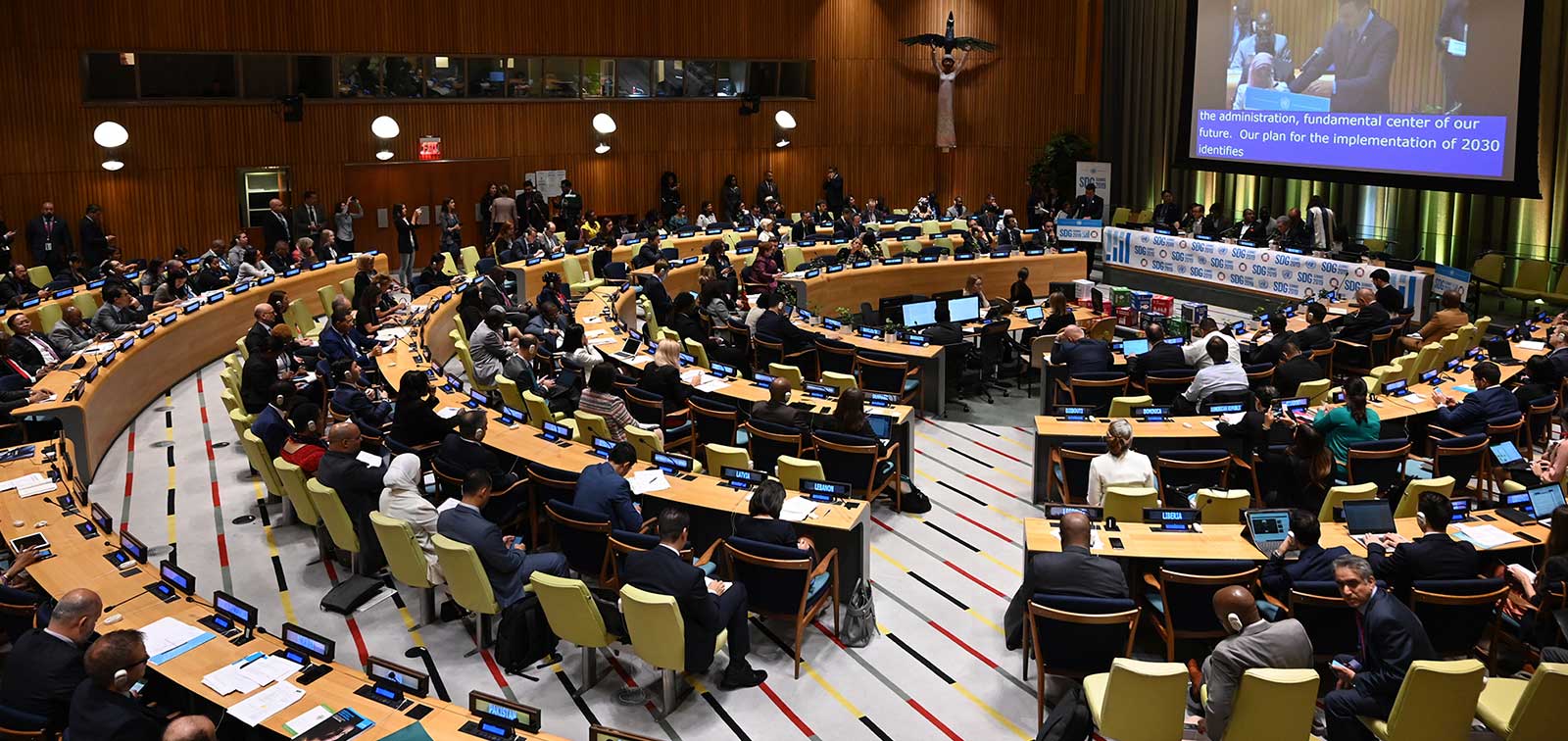Frenetic Week for ISGlobal at the United Nations in New York
ISGlobal representatives participate in official and parallel events during the United Nations General Assembly
01.10.2019
Every September, an army of diplomats, politicians, activists, international development experts, interpreters and countless other professionals come together in New York for a packed week of events that take place during the United Nations General Assembly (UNGA). This year, the Barcelona Institute for Global Health (ISGlobal) attended UNGA meetings and several parallel events during the week to reinforce the message that the Sustainable Development Goals (SDG) Agenda is the only possible way forward in the fight for equity.
On Monday the 23rd, the week kicked off with the High-Level Meeting of the United Nations General Assembly on the topic of universal health coverage. The meeting, which was entitled “Universal Health Coverage: Moving Forward Together to Build a Healthier World” was attended by Antoni Plasència, director general of ISGlobal. The purpose of the meeting was to analyse how this essential mechanism can reduce health inequities, one of the most difficult global challenges facing the world today, by ensuring that everyone has access to the health services they need without the financial hardship of catastrophic spending.
On Wednesday the 25th, Spain’s Prime Minister, Pedro Sánchez spoke at the opening session of Goalkeepers, an event organised by the Bill and Melinda Gates Foundation focused on the challenge of fighting global inequality. This event was also attended by Rafael Vilasanjuan, ISGlobal’s Director of Global Analysis and Development. In his speech, the Prime Minister described the steps Spain is taking to achieve the SDG of the 2030 Agenda and confirmed the announcement made at the UNGA that Spain will once again contribute to several important multilateral funds, including the Global Fund, an objective that ISGlobal and other civil society organisations have been pursuing for years.
Later that day, before the UN Summit on the SDGs, the Cervantes Institute of New York hosted Josep Borrell, the Spanish Minister of Foreign Affairs, and Cristina Gallach, Spain’s High Commissioner for the 2030 Agenda. Together, they presented the Progress Report on the Implementation of Agenda 2030 in Spain. At that meeting, from his seat in row 0, Antoni Plasència, director general of ISGlobal, highlighted areas in which Spain can offer added value, including “the challenge of promoting a real revolution in mobility, urban design and health policies in our cities, a component of the ecological transition in which the risks are very high and an updated model for development aid based on knowledge exchange and partnerships between diverse actors.” He went on to cite some of the real achievements of this model “in combatting poverty and supporting sectors of strategic importance for our future in areas such as the fight against malaria and the promotion of renewable energies”. Plasència also highlighted the opportunity for Spain to play a leading role in promoting primary health care as a key component of universal health coverage.
Finally, a parallel event at the UN headquarters—focused on the transformative power of innovation to support universal health coverage—brought together several organisations which are leading health innovation projects financed by Unitaid, including ISGlobal, which is leading the consortium undertaking the BOHEMIA project. In his opening words, Dr Tedros Adhanom Ghebreyesus, Director General of the WHO, emphasised the value of innovation, especially in the context of African countries, as a tool for tackling the major challenges currently facing global health.
Over the next two days, the focus was on the meeting of the Board of Directors of the Sustainable Development Solutions Network (SDSN). On Thursday the 25th, at the SDSN Global Solutions Forum, experts from around the world explained what was being done in their countries to further the SDG. Gonzalo Fanjul, Policy Director at ISGlobal, presented 4 possible solutions for furthering the implementation of SDG 3. On Friday, at the meeting of the SDSN Health for All thematic network co-hosted by ISGlobal, ISGlobal’s director reported on some of the network’s achievements and challenges.
That meeting brought to a close an intense week of contacts and work informed by a belief that the generation and translation of knowledge can make a valuable contribution to closing the global health equity gap and enhancing the transformative value of the SDG.



